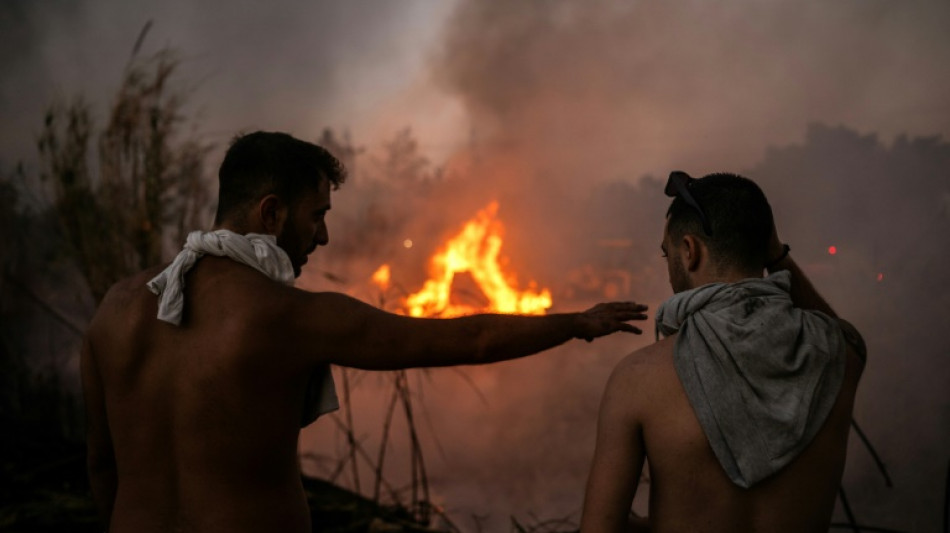

EU firefighters to join as Greece battles blaze
Greece battled a massive wildfire near Athens for a third day on Tuesday, with hundreds of European firefighters due to join the effort to contain the deadly blaze that has scorched parts of the capital's suburbs.
Fuelled by strong winds, Greece's worst wildfire this year raced across a parched landscape, forcing thousands of people to flee their homes as it wreaked widespread destruction around the Greek capital.
At least one person has died and at least 66 people have been treated for injuries. Two firefighters have also been hurt.
"We are at a better level across the front", Costas Tsigkas, head of the association of Greek firefighter officers, told state television ERT early on Tuesday.
"But conditions again will not be easy. There will be winds from midday onwards" and "every hour that passes will be more difficult", he said.
The National Observatory said temperatures of up to 38 degrees Celsius (100 Fahrenheit) are expected in Athens on Tuesday, with winds of up to 39 kilometres (24 miles) per hour.
Some 700 firefighters, backed by 200 fire engines and nine aircraft, were on Tuesday battling the blaze that broke out Sunday afternoon in the town of Varnavas, some 35 kilometres northeast of Athens, the fire department said.
Fanned by strong winds, it grew to a 30-kilometre-long front line of flames more than 25 metres (80 feet) high in places, according to state TV ERT.
Greece's National Observatory, itself threatened by the wildfire, said Monday that at least 10,000 hectares (24,700 acres) had been devastated by the fire.
Following a call for international help by the Greek government, additional firefighters, helicopters, fire engines and water tankers were expected to join the effort from France, Italy, the Czech Republic, Romania, Serbia and Turkey, authorities said.
A woman's body was found on Tuesday inside a burned-out Athens factory in what is believed to be the first death from the wildfire.
According to the health ministry, 66 people have been treated for injuries related to the fire since Sunday.
- 'Unanswered questions' -
Greece's conservative government came under attack from the press on Tuesday.
"Enough is enough," thundered the front page of Greece's top-selling centrist daily Ta Nea, while the liberal Kathimerini said the "out of control" inferno "had left huge destruction (and) unanswered questions".
"Evacuate Maximou," said the left-wing Efsyn daily, referring to the building housing the prime minister's office.
Many other dailies also led with the "nightmare", including pro-government newspaper Eleftheros Typos.
Despite a force of hundreds of firefighters, scores of fire engines and dozens of water bombers, on Monday the blaze scaled Mount Pentelikon, also known as Mount Pentelicus, that overlooks the capital and bore down on suburbs home to tens of thousands of residents.
Dozens of evacuation orders were issued and many thousands fled as the fire destroyed homes, businesses and cars in the suburbs of Nea Penteli, Palaia Penteli, Patima Halandriou and Vrilissia.
Prime Minister Kyriakos Mitsotakis, who was vacationing on his home island of Hania, returned to the capital on Sunday.
He was shown visiting the Civil Protection Ministry on Monday but has yet to comment on the disaster.
The destruction revived memories of the July 2018 fires in Mati, a coastal area near Marathon where 104 people died in a tragedy later blamed on evacuation delays and errors.
The summer wildfire season in Greece this year has seen dozens of daily blazes after the Mediterranean country recorded its warmest winter and the hottest June and July since reliable data collection began in 1960.
K.Cairstiona--NG



